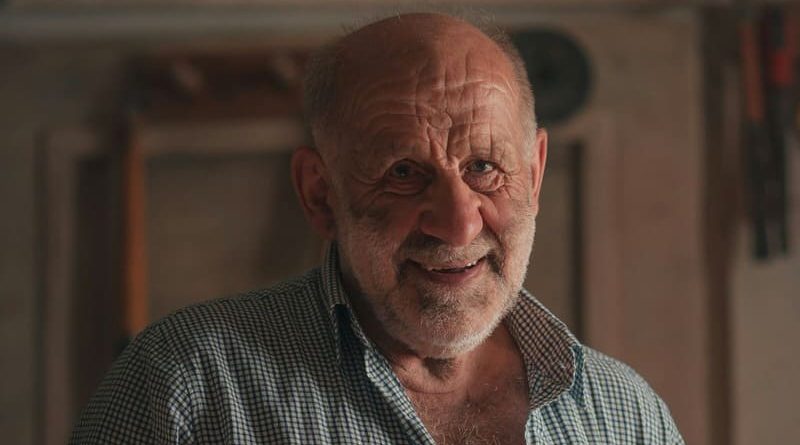Albert Albertyn is a master woodworker based in Saskatoon, Saskatchewan, renowned for his exquisite craftsmanship and innovative designs. Born in 1968, Albert’s passion for woodworking was kindled in his grandfather’s workshop, a place where he learned the foundational skills and the value of patience and precision. A graduate of Saskatchewan Polytechnic, Albert has honed his craft over decades, specializing in creating bespoke furniture and intricate artworks that blend traditional techniques with contemporary aesthetics. Known for his deep respect for the material, Albert chooses sustainably sourced timber, emphasizing the beauty and uniqueness of each piece. His work not only showcases the versatility of wood but also reflects his commitment to eco-friendly practices. Beyond his creations, Albert is dedicated to nurturing the next generation of woodworkers, sharing his knowledge through workshops and advocating for the therapeutic aspects of the craft.
How did you get started in this business?
I grew up immersed in woodworking, spending countless hours in my grandfather’s workshop, where he was a master carpenter. He passed down his skills and passion for woodworking to me. After completing my formal education at Saskatchewan Polytechnic, I decided to blend traditional craftsmanship with modern design aesthetics and established my own workshop in Saskatoon.
How do you make money?
My main source of income comes from designing and creating custom furniture and intricate cabinetry. I work closely with clients to create bespoke pieces that meet their specific aesthetic and functional needs. Additionally, I run workshops and seminars, which not only help spread the craft but also generate additional revenue.
How long did it take for you to become profitable?
It took about three years to become profitable. Building a reputation for quality work and gaining a steady stream of clients required time, patience, and a lot of hard work. Initially, managing overheads while trying to establish a client base was challenging, but with persistence, the business began to sustain itself and then grow.
When you were starting out, was there ever a time you doubted it would work?
Certainly, there were moments of doubt, especially in the early stages when the workshop wasn’t as busy, and the expenses seemed to pile up. However, my passion for the craft and a deep belief in the value of handcrafted, sustainable furniture kept me going through those tough times.
How did you get your first customer?
My first customer came through a local home and garden show where I displayed some of my work. This exposure helped me connect directly with potential clients who were interested in custom woodworking. It was an invaluable opportunity to showcase my skills and the quality of my work.
What is one marketing strategy that works well to generate new business?
One effective marketing strategy has been leveraging social media to showcase my projects and the process behind them. By sharing stories and updates about my work, I’ve been able to engage with a broader audience. This visibility often leads to inquiries and new projects from people who feel a connection to the craftsmanship and ethos of my work.
What is the toughest decision you’ve had to make in the last few months?
The toughest decision was choosing to turn down certain projects that didn’t align with my workshop’s principles of sustainability and craftsmanship. It’s always challenging to say no to potential business, but maintaining the integrity of my craft and the sustainability focus of my workshop is paramount.
What do you think makes you successful?
I believe my success stems from a strong commitment to quality and sustainability, as well as a genuine passion for the craft of woodworking. My ability to blend traditional techniques with modern design also sets my work apart in the marketplace.
What has been your most satisfying moment in business?
The most satisfying moment was when I completed a large commissioned piece for a community center, which not only received high praise for its design and craftsmanship but also became a centerpiece that brought much joy and utility to the community. Seeing my work appreciated and used in such a meaningful way was incredibly fulfilling.
What does the future hold for your business?
I plan to expand the educational side of my business by offering more workshops and seminars, and potentially collaborating with other artisans to promote craftsmanship and sustainability. I’m also looking into more environmentally friendly materials and techniques to continue pushing the boundaries of sustainable woodworking.
What business books have inspired you?
“Craftsman’s Legacy: Why Working with Our Hands Gives Us Meaning” by Eric Gorges has been particularly inspirational. It delves into the importance of craftsmanship and the personal fulfillment that comes from working with one’s hands, which resonates deeply with my philosophy.
What advice would you give to your younger self?
I would advise my younger self to be patient and stay committed to your values. The path of a craftsman is not always easy or straightforward, but persistence and integrity pay off. Also, always be open to learning—both from successes and failures.
Are you willing to be a mentor?
Absolutely, I am always eager to mentor young woodworkers. Sharing knowledge and fostering new talent in the field of woodworking is not only a way to give back to the community but also to ensure that the art of woodworking thrives for future generations.

